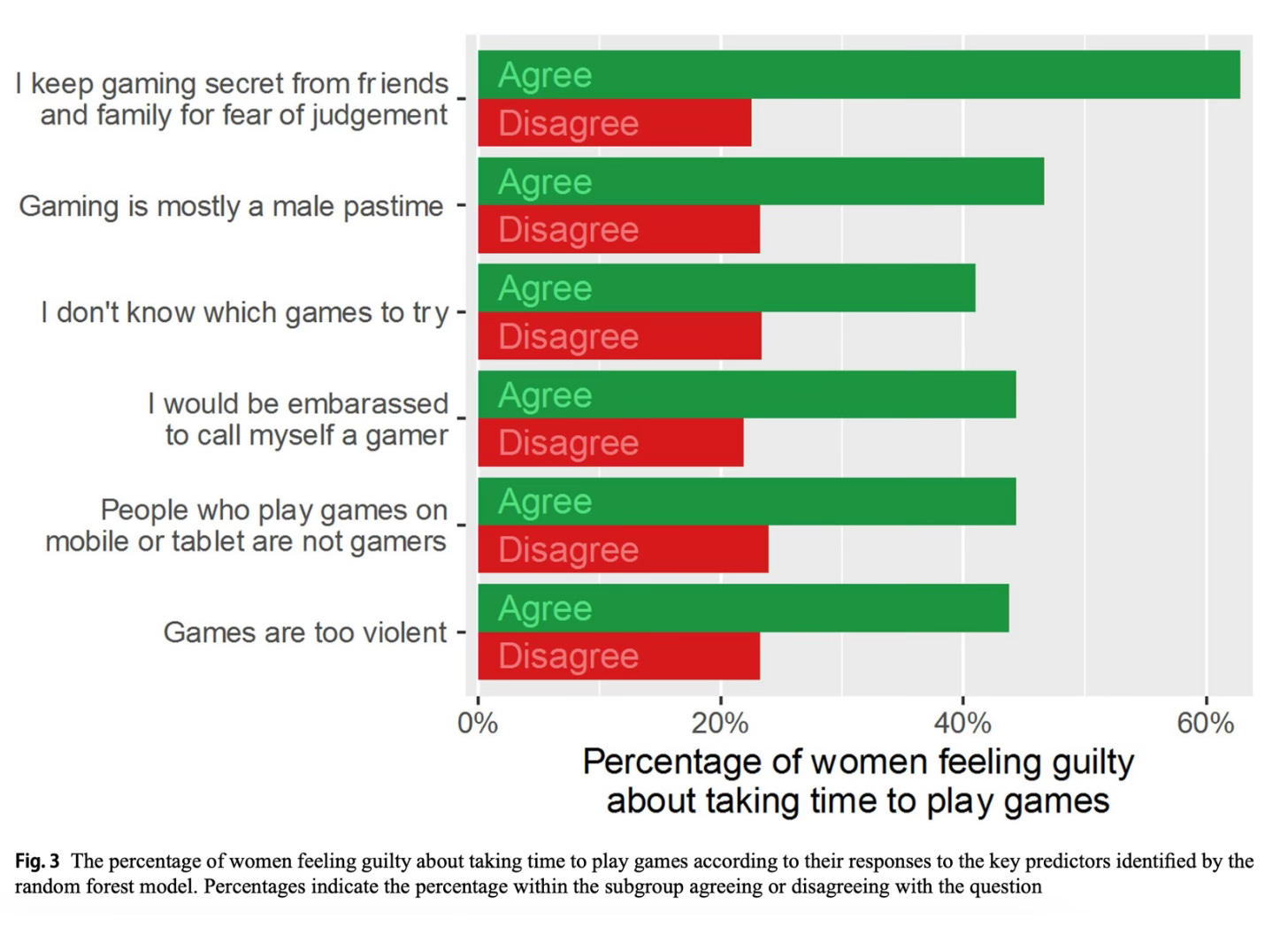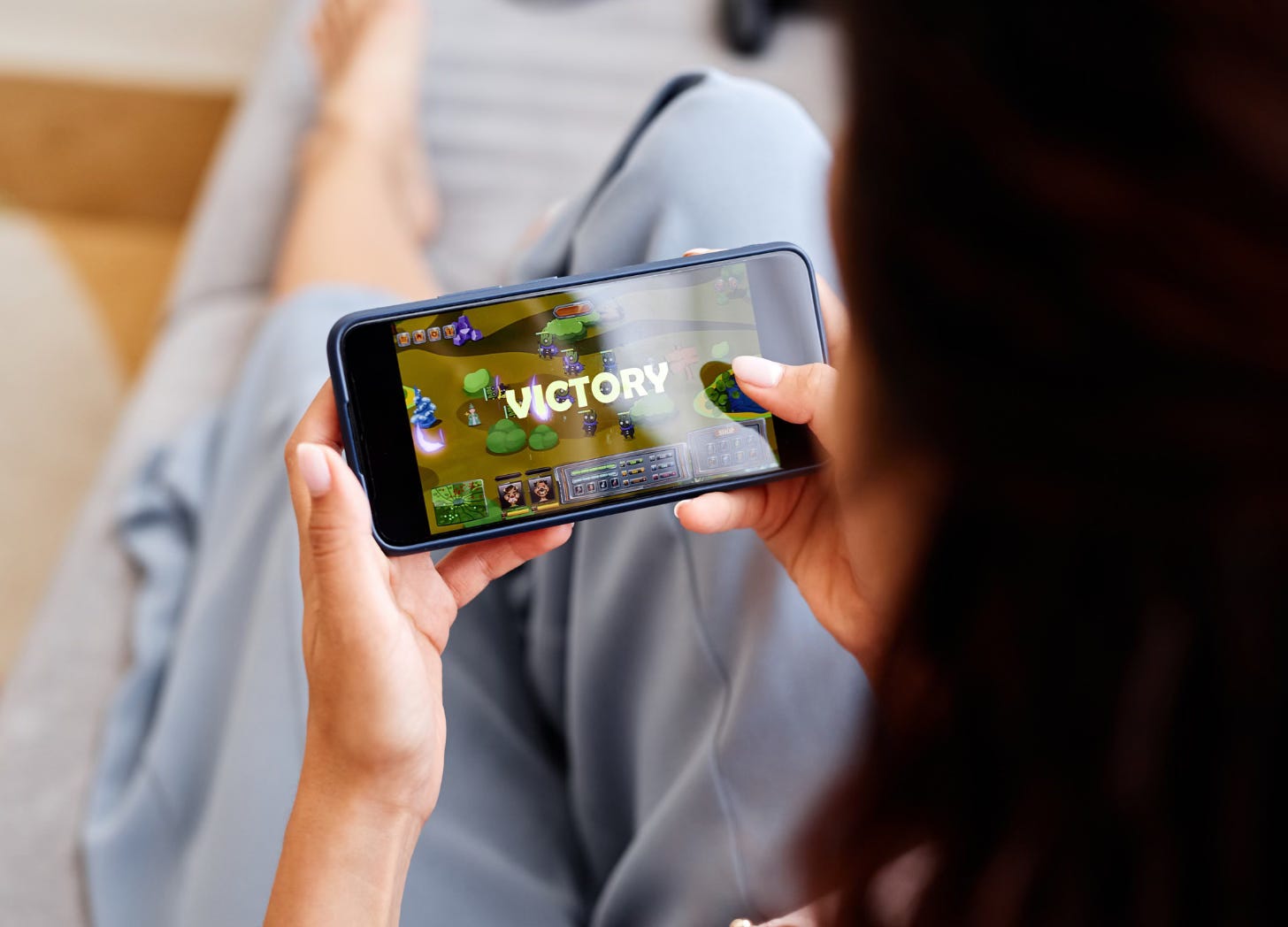UK women’s ‘guilt’ over their ‘secret’ hobby
Gaming is no longer a boys’ only club but women feel ashamed to play.
Today, 51% of women in the UK play video games in some form – a near equal split with men (53%).
Yet a new study published in Sex Roles reveals that many women continue to feel shut out of gaming culture, carrying guilt, secrecy, and shame around a pastime that should be pure play.
The survey of 1,000 women across the UK - all of whom play mobile games* – highlights the paradox at the heart of women’s gaming: women are playing in huge numbers, but they don’t feel they belong.
*Mobile games are the most popular way for women to play.
The guilt factor
Almost a third (29%) of women said they feel guilty about taking time to play games. This guilt wasn’t linked to how much they played - those gaming for hours each day felt it just as strongly - but to cultural expectations. Younger women were particularly affected: those aged 16–24 were three times more likely to feel guilty than women over 54.
Researchers connect this to broader gender inequalities in leisure time. Women consistently have less free time than men, and when they do take it, they’re more likely to feel they should be doing something “productive” instead.
Secret gamers
One in six women admitted they keep their gaming a secret for fear of judgement. Tellingly, women who reported feeling anxious or depressed while scrolling social media were twice as likely to hide their gaming.
Perhaps most surprisingly, women who felt proud of their gaming achievements were more likely to hide it than those who didn’t. Pride, it seems, risks ridicule.

Casual by default
Three-quarters of respondents (74.8%) identified themselves as “casual gamers”, even among women spending five or more hours a day on games. Only 4.7% called themselves “hardcore gamers”. The term “gamer” itself is fraught: almost 60% said they don’t play enough to be one, and a third would be embarrassed to use the label.
This disconnect reflects how women’s play is dismissed. Genres dominated by women – puzzle, word, and logic games – are often devalued as “casual” or unserious. Meanwhile, games marketed to women frequently centre on emotional labour (think caregiving or cooking), reinforcing old stereotypes.
Violence and visibility
Another barrier identified in the study is perception. Women were twice as likely to feel guilty about gaming if they thought games were too violent or if they didn’t know what to play. Despite the diversity of games available – from cosy life sims to story-led adventures – marketing often fails to reach women, leaving them with a narrow view of what gaming can be.
What’s really at stake
The most surprising finding? Feelings of guilt and secrecy didn’t reduce the amount of time women spent playing. Women who felt guilty played just as much as those who didn’t – they just felt worse while doing it.
This suggests guilt and secrecy aren’t the root problems, but symptoms of exclusion. When women feel they don’t belong in gaming culture, every hour of play comes with an asterisk.
Related articles
Changing the game
The study makes a clear case for structural change: reducing gender inequality in leisure time, diversifying the types of games marketed to women, and normalising pride in women’s gaming achievements.
For the games industry, the business case is obvious – the UK gaming market is worth nearly £8 billion, with women making up half the players. Broadening perceptions of who games are for isn’t just socially overdue, it’s commercially smart.
And for players, there’s a cultural shift to lead. The researchers end on a simple call to action: if you play games, recommend one to a friend. Invite her in. Expand the circle.





